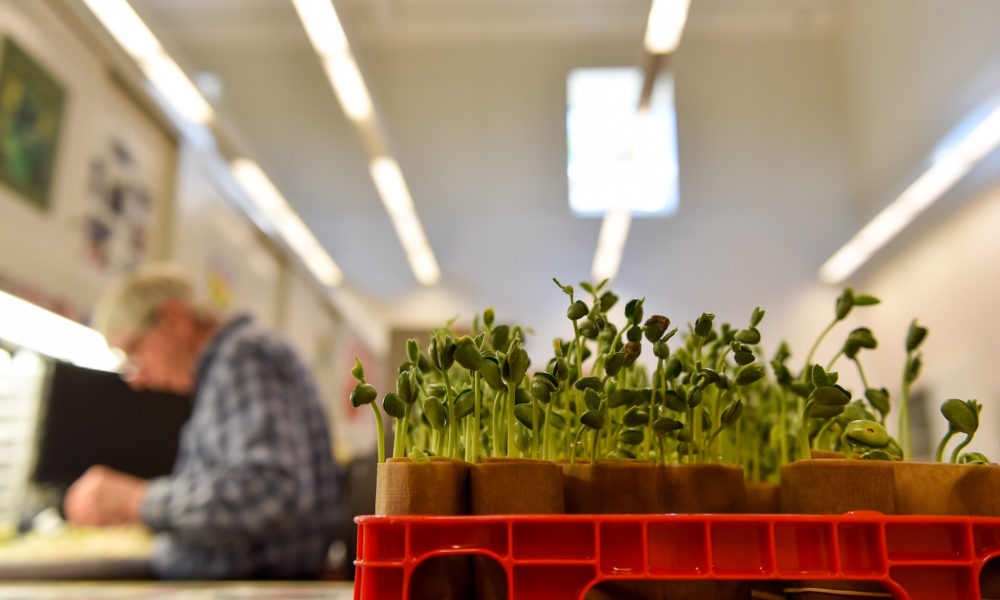There are a lot of problems facing our food and agriculture today, and they’re all connected. To solve such a complex mix of problems, we need to see the connections clearly and identify ways to address them holistically rather than in piecemeal fashion. The 2023 farm bill—which Congress is already starting to debate—could give us that opportunity. But before I get to that, here are just a few recent news stories that illustrate the multiple issues surrounding the long-term sustainability, safety, and nutritional value of our food:
- The Guardian reported last month that global food systems have become frighteningly undiversified—with fewer and fewer varieties of many common foods—making our food supply more vulnerable to the accelerating pace of disruption that will come with climate change. (On a related note, Science News reported on key foods—from millet to mussels—we may need to eat more of, because scientists believe they will be more resilient to climate change.)
- Avian flu continues to wreak havoc on poultry production around the world. Bloomberg reported last week that the current US outbreak, soon to be the worst this country has seen, had already killed 37 million chickens. Culling of infected egg-laying hens at one giant facility in Iowa in April was particularly gruesome and inhumane, affecting not just birds but also workers.
- Multiple recent reports have documented large-scale problems of polluted farmland and water resources, from farm runoff endangering the Mississippi River to toxic “forever chemicals” contaminating farm soils in Maine and across the nation.
- This month, a Columbia University climatologist and agronomist won the prestigious World Food Prize for her pioneering work in modeling the impact of climate change on food production worldwide, a recognition that raises the profile of this critical area of science.
- And last week, the Biden administration announced that it will host the first White House conference on hunger and nutrition in 50 years. It hopes the gathering of experts will lay the groundwork for a much-needed plan to end US hunger—which has spiked during the pandemic—and reduce the nation’s shockingly high rates of diet-related diseases.
Just this quick roundup of headlines demonstrates the breadth of issues at play in the complex system that puts food on our tables. And if we know anything about complex systems, it’s that they require a systematic approach to science and problem solving.
Federal food policy must invest in systems science
Enter the federal farm bill. This massive piece of legislation encompasses everything from agricultural conservation and nutrition assistance to rural development and trade, and it is reauthorized by Congress every five years. Because the last farm bill was passed in 2018, it is due for an update in 2023. Legislatively speaking, that is right around the corner.
Research is an often-overlooked piece of the farm bill that desperately needs an update. As our rapidly warming climate makes food production more vulnerable, we need systems research that approaches farming, climate and the environment, and nutrition and health equity as interconnected issues and works across disciplines to identify common solutions.
An emerging scientific field—called sustainable nutrition science—is doing just that. In January 2022, scientists and practitioners briefed congressional staff about the power of systems thinking when it comes to food. Here’s a short clip from that briefing:
How can USDA research programs advance sustainable nutrition science?
The Agriculture and Food Research Initiative (AFRI) at the US Department of Agriculture is the leading competitive grants program for agricultural sciences, supporting research, education, and extension projects that address a wide range of issues throughout the food system—from farm to fork. Currently, much of this funding is dedicated to six priority research areas:
- Plant health and production and plant products
- Animal health and production and animal products
- Food safety, nutrition, and health
- Bioenergy, natural resources, and environment
- Agricultural systems and technology
- Agriculture economics and rural communities
These priority research areas, established via the farm bill, are undoubtedly important. And again, they’re all related. Research in one of these areas might help the federal government implement effective food safety regulations that will keep people from getting sick, for example, or maximize efficiency in agricultural production systems to reduce resource use.
But here’s the hitch: the most significant threats to public health and systems of agricultural production that are embedded in these priority research areas—such as nutrition insecurity, climate change, and environmental degradation—are all related, and our research programs need to treat them as such. Although recent USDA grants suggest that things are already moving in this direction, leveraging legislative language in the farm bill to bring these interconnected issues to the forefront of stated research priorities is essential for developing lasting solutions to large-scale food systems issues and making the most of federal research dollars.
There are several steps that Congress can take in the next farm bill to advance research programs that will generate effective solutions to some of the most pressing challenges facing agricultural production and public health.
First, AFRI research priorities established in the 2023 farm bill must encourage transdisciplinary research that addresses challenges at the intersection of food production, climate and environment, and nutrition, with an emphasis on health equity. Therefore, we recommend that Congress include language in the next farm bill that would ensure AFRI prioritizes this type of research under its food safety, nutrition, and health priority area.
Second, greater funding is needed to support transdisciplinary research. Though the 2018 farm bill reauthorized AFRI to be funded at $700 million a year, the program received just $445 million through 2022 appropriations legislation. Meanwhile, a 2021 UCS analysis estimated that research at the intersection of food production, climate and environment, and nutrition received just $16 million each year—amounting to less than 25 cents out of every thousand dollars in federal research spending. This should be at least tripled to a minimum of $50 million per year, based on demand and unmet need for grant awards, and will require greater funding still if it is to effectively address such large-scale issues as climate change and diet-related disease. Lastly, we urge Congress to prioritize such funding for minority-serving institutions and those engaging in collaborative partnerships and community-based participatory research.
Calling all scientists! Join UCS in calling for expanded federal investments in sustainable nutrition science. Sign our letter to Congress today.

